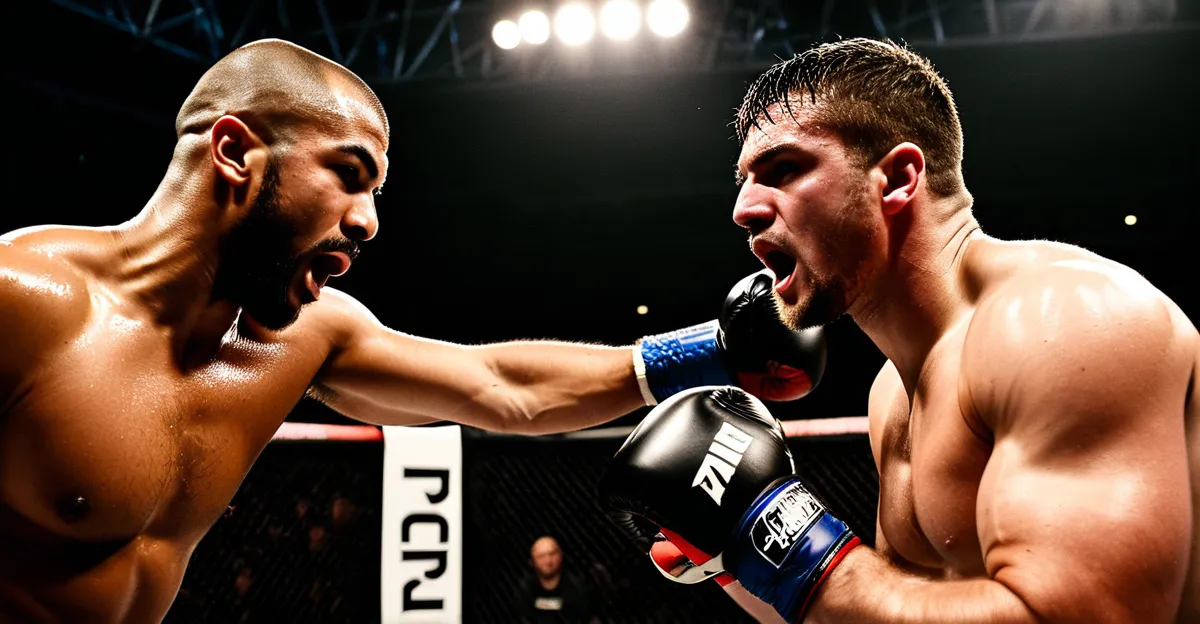Role of Structured Training in Building Discipline
Structured routines are fundamental in shaping discipline in martial arts, particularly within combat sports training UK. Regular practice sessions create a consistent framework that helps practitioners develop self-control and mental focus. In UK combat sports training, adhering to a set schedule ensures that athletes progressively build physical skills while strengthening their mental resilience.
A key aspect lies in the strict adherence to rules and etiquette within the dojo or gym environment. This discipline fosters respect among peers and instills a sense of responsibility, essential traits for success both inside and outside the ring.
Also to read : What Are the Key Benefits of Mixed Martial Arts for Personal Development?
Moreover, goal setting and progress tracking play crucial roles in enhancing discipline. By defining clear milestones, practitioners can monitor improvements, maintain motivation, and regulate their training intensity effectively. This structured approach encourages long-term commitment and helps combat sports participants overcome challenges by focusing on measurable progress.
Ultimately, the integration of structured routines, respect for gym protocols, and systematic goal evaluation collectively reinforces discipline in martial arts. This synergy benefits all involved in combat sports training UK, promoting physical excellence and mental fortitude essential for competitive success.
Also to discover : How do UK combat sports academies foster talent?
Instructor Influence and Mentorship
In combat sports coaches UK play a crucial role beyond teaching physical techniques. They provide vital guidance that shapes not just skills but also character. These coaches enforce standards for behaviour, ensuring athletes develop discipline, respect, and self-control—qualities essential both inside and outside the ring. This kind of mentorship helps athletes maintain a strong mental framework, which is just as important as physical ability in martial arts.
Mentoring in martial arts often extends beyond formal training sessions. Senior athletes serve as role models, demonstrating how respect, responsibility, and perseverance translate into everyday life. This peer mentoring reinforces positive values and encourages younger fighters to uphold high standards consistently.
In the UK, many combat sports coaches have cultivated tightly-knit training communities where discipline is emphasized through example and shared experience. Coaches like these are known for fostering environments where self-control is not just taught but lived. Their influence guides athletes toward maturity, enhancing the sport’s reputation as a discipline that builds respect and responsibility. Such mentorship is the backbone of enduring success in martial arts, proving the profound impact instructors have on their students.
Techniques and Training Routines That Foster Self-Control
In martial arts discipline techniques, repetition and forms play a crucial role in developing self-control. Practitioners engage in repeated drilling of specific movements, which helps cultivate patience and resistance to impulsive reactions. Sparring sessions further challenge students to apply these skills under pressure, improving their ability to regulate emotions and maintain focus.
Self-control practices UK-based gyms often integrate include meditation and controlled breathing exercises. These methods teach fighters to centre their mind, reduce stress, and remain composed. Mental preparation before combat sports exercises enhances clarity and decision-making, essential for both competition and everyday discipline.
For example, some UK combat gyms incorporate mindfulness sessions alongside traditional workouts, recognizing how these augment physical techniques with psychological resilience. This combination solidifies self-discipline by training both the body and mind simultaneously, leading to sustained behavioral improvements.
Overall, these routines highlight how martial arts discipline techniques are more than physical drills—they offer a system that trains athletes to balance mental and emotional control as they develop their combat skills.
Personal Development and Behavioural Changes
Combat sports offer significant personal growth opportunities through structured training and discipline. Practitioners often experience enhanced focus, which translates into better concentration in daily tasks and emotional regulation that helps manage stress and anxiety. This blend of physical and mental rigor builds resilience, a key behavioural benefit martial arts consistently promote.
Evidence from UK athletes and students supports these outcomes. Many report increased confidence and improved patience, attributing these to regular combat sports practice. For instance, clubs across the UK emphasize the role of consistent training in shaping positive behaviour, with coaches observing marked improvements in attitude and social skills among participants.
Research from UK-based clubs further highlights discipline outcomes UK practitioners achieve. This includes better time management and a stronger sense of responsibility that extends beyond the gym. The cumulative effect of these changes fosters a growth mindset, encouraging continued personal development.
Embracing combat sports becomes more than physical exercise; it’s a pathway to behavioural excellence and emotional strength that benefits all areas of life.
Parental and Educational Perspectives
Parents across the UK increasingly value combat sports for children UK due to their proven role in fostering discipline and self-control. Many testimonials reveal noticeable changes in children’s behavior soon after starting martial arts education. Parents report improved focus, respect for rules, and enhanced emotional regulation. These attributes are crucial not only at home but in academic settings as well.
Educators and youth program coordinators echo these positive assessments. They observe that structured combat sports classes help children develop perseverance and teamwork skills. Martial arts education integrates physical activity with mental challenges, promoting a balanced approach to personal growth.
Moreover, schools advocate for combat sports because they address issues like hyperactivity and lack of concentration effectively. These programs often lead to reduced behavioral problems and boost children’s confidence, making them more engaged learners. The discipline learned here translates to better classroom behavior and social interactions.
The rise in popularity of martial arts education within UK schools highlights a collective understanding that such training is a valuable tool for shaping well-rounded young individuals capable of self-control and resilience.







